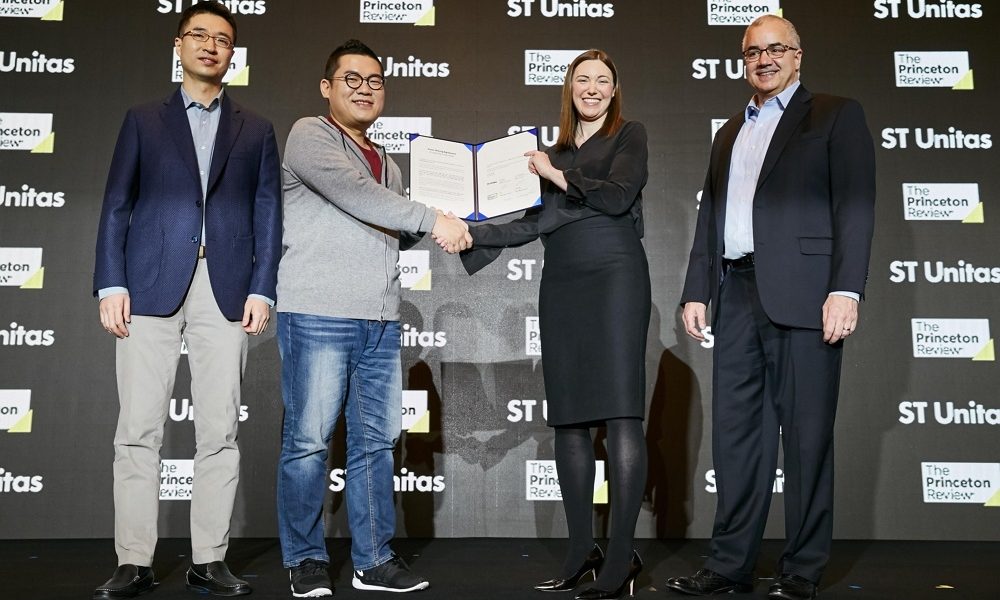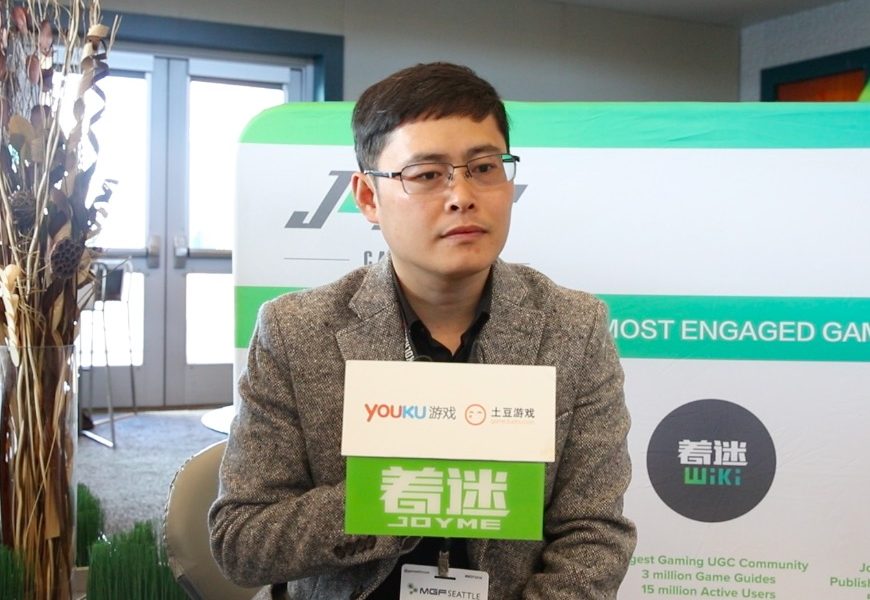Category: Mergers & Acquisitions
Temasek takes 30% stake in Italian fashion brand Stone Island
Singapore’s sovereign wealth fund Temasek is set to acquire a 30 percent stake in Italian fashion retailer Stone Island, according to its parent firm Sportswear Company S.p.A.
Financial terms of the transaction were not disclosed, but it is understood that the capital will help the men’s sportswear brand to expand its reach internationally.
“I am truly satisfied for this partnership with one of the world’s most established investment companies,” said the Sportswear Company’s founder Carlo Rivetti. “I particularly appreciate Temasek’s investment strategy to participate in companies with strong growth potential, know-hows, and identity.”
For Temasek, this comes at a time when its divestment is outpacing its investment. Increasingly, the firm is under pressure for higher investment returns which has led it to make larger bets and adding more unlisted stocks to its portfolio.
However, this is not the first fashion investment for the company. Last year, Temasek has participated in the US$110 million Series F funding round for Farfetch, as well as acquired a 26.8 percent stake in Italian fashion firm Moncler.
Founded in 1982 by Massimo Osti, Stone Island’s famous jackets were the result of an experiment of creating the fabric for military jackets. The company was acquired in 1983 by Rivetti’s family firm GFT which was one of the largest apparel manufacturers in Italy.
It later became Sportswear Company and developed its brand Stone Island to become a mixture of technical wear, high-fashion, and streetwear. The company even has collaborations with Supreme and Nike, as well as stockists like Kith.
Meanwhile, the company reports revenues for 2016 to be €109 million (about US$129 million ), that is a 26 percent increase compared to last year at €87 million (about US$97 million)
With this acquisition, Temasek agrees to guarantee the continuity and the autonomy of the Stone Island management team, which according to Rivetti is essential to successfully face and overcome the challenges for the fashion sectors.
“I wanted to both capitalize on the work done in 35 years and to team with a partner to face the increasingly complex opportunities proposed by the markets,” Rivetti explained.
“I am confident that the brand Stone Island will keep on with increased success its development, being able to count on a competent and attentive partner to the specifics of our business and with strong international relations,” he added.
Jollibee gains control over SuperFoods Group ahead of Vietnam IPO
Philippine’s homegrown fast food giant Jollibee Foods Corp (JFC) said on Thursday that its subsidiary JSF Investments Pte. Ltd has hiked its stakes in SuperFoods Group to 60 percent.
The 10 percent increase from its previous 50-50 ownership share comes from its partner in the joint venture, Viet Thai International Joint Stock Co. (VTI).
This move lies in line with the agreement dated back on November 18, 2016, which will allow JFC to include the joint venture in its financial consolidation and in turn facilitate the listing of SuperFoods Group on Vietnam’s equities market by July 2019.
“To help fund the SuperFoods’ expansion plans, Jollibee Foods Corporation will henceforth take the lead in the capital raising activities of the joint venture and will work with various financial institutions in Vietnam and other parts of Asia in this undertaking,” Jollibee said in a statement.
SuperFoods is a wholly-owned subsidiary of Jollibee’s JSF Investments Pte Ltd (JSF), and Viet Thai International Joint Stock Co. (VTI) with most of its businesses in Vietnam.
The SuperFoods Group owns and operates the brands Highlands Coffee and Vietnamese noodle house Pho 24, as well as the Hard Rock Cafe franchise shops in Vietnam, Macau, and Hong Kong. At the end of March, these three brands amount for a total of 216 stores with its presence across 17 countries outside the Philippines, including Indonesia, Cambodia, and Australia.
In the next three years, the SuperFoods Group plans to open another 485 stores, mostly in Vietnam, while expanding the brands through franchising in other parts of Asia and in Australia. The company also plans to enter Malaysia as part of its expansion in Southeast Asia.
JFC plans to build a significant business in Vietnam given its potential to become a large consumer market. Like the Philippines, Vietnam has a high population at 95 million and has enjoyed robust economic growth, which reached a 6.2 percent growth last year.
The SuperFoods joint venture is one of its fastest-growing businesses, with its sales reaching US$58 million in 2016, that is up to 46 percent from the prior year, driven by the 73 percent expansion of the Highlands Coffee.
JFC operates the largest foodservice network in the Philippines. At the end of March, it had 2,684 restaurant outlets under the brands Jollibee, Chowking, Greenwich, Burger King, and Mang Inasal. Abroad, it operated 620 restaurants including the brands Yonghe King, Hong Zhuang Yuan, and Dunkin’ Donuts.
JFC maintains interest in joint ventures operating 611 stores worldwide. Aside from its interest in SuperFoods, it also has 40 percent ownership of US chain Smashburger and 48 percent of 12 Hotpot.
By Vivian Foo, VCNewsNetwork
Korean ST Unitas to acquire the Princeton Review
ST Unitas, Korea’s largest operator of private learning institutes on February 14 announced that it has acquired the Princeton Review, a major U.S. education service firm, as its first step toward becoming a global powerhouse in the expanding online-based exam preparation market.
“We are happy to announce that ST Unitas and the Princeton Review have become one family,” said Yoon Sung-Hyuk, ST Unitas’s CEO. “We will together build a global education platform that offers innovative, information-technology based, tailored services to our users across the globe.”
Financial terms of the agreement were not disclosed though predicaments according to investment bank analysts states that ST Unitas would have to pay about 100 billion won (US$87 million) to acquire the Massachusets-based platform.
Founded in April 2010, ST Unitas is the first in the industry to develop scientific studying methods based on big data from 60 subsidiary brands which are ranked number one in their respective division including Engdangi (English cram school) and Gongdangi (Civil Service Exam cram school), which utilize IT in education.
The education firm offers English, Chinese, and other foreign language courses as well as various civil-service tests in addition to a range of lectures which are available both online and offline. Consequently, ST Unitas reached over 1200 employees and annual sales of $350 million (400 billion won) in 2016.
The Princeton Review, founded in 1981, is a college admission services company offering test preparation services, tutoring, and admissions resources, online courses, and books. Besides the United States, it has sent more than 1.5 million students to elite colleges in 20 countries.
“We believe that now is the right time for us to enter the United States, the world’s largest education market. The U.S. online education industry has been expanding rapidly over the past five years,” Yoon said. “Given that the majority of IT platforms that dominate the global market, such as Facebook and Uber, were born in the United States, we decided to create our platform in the world’s largest economy. This is another reason why we decided to acquire The Princeton Review.”
Following this acquisition, the CEO said ST Unitas will take advantage of the U.S. education service firm’s vast database, its extensive overseas network as well as its knowhows on the scholastic aptitude test (SAT) and other standardised U.S. exams to become a leader in the $250 billion online education market.
“We have been successful in Korea because we work hard to offer top-quality education materials to our customers at affordable prices,” Yoon said. “What we would like to do is take this business model in cooperation with The Princeton Review to the United States and other countries. I have no doubt ST Unitas will become a top global education platform provider.”
The Princeton Review CEO Kate Walker said that in cooperation with ST Unitas, the company will continue to expand its market share and secure technology leadership in the rapidly growing online education market.
By Vivian Foo, Unicorn Media
China’s JoyMe, Kee Ever to set up US$360 million M&A fund to acquire oversea video game companies
JoyMe Group, a Beijing-based internet technology company has formed a strategic alliance with Kee Ever Bright Decorative Technology Co., Ltd., a Jiangsu province-based online video game company to launch a RMB3 billion (about US$360 million) video game M&A fund.
The first phase of the fund, tentatively set at RMB1 billion (about US$140 million) will focus on the investment of video games distribution, production, development, eSports, and other industries which lie in line with the development strategy of the two investment partners.
In 2016, the video game market in China was estimated to worth RMB165 billion (about US$24 billion), in addition to an emerging trend in merger and acquisition, recording a total of US$28 billion transaction value in the same year. This can be seen looking at Tencent Holdings Ltd’s US$8.6 billion acquisition of Finland-based mobile game development company Supercell and Youzu Interactive’s €80 million acquisition of German game business Bigpoint, among some.
“The global video games industry has a history of over 50 years, and China’s gaming market has its own three eras whereby, in the beginning, companies like Sdo and The9 only aim to become the proxy of a good product. Later, a new batch of companies emerged which set research and development at its core. Today, the situation has transitioned to that of Tencent and Netease, whereby internationalisation becomes the driving force of most gaming companies,” said Chen Yang, the CEO and Group Chairman of JoyMe.
“Hence, it is time for us to launch a buyout fund targeting the international market. As comparing China to other countries, we are lacking in terms of technology and creativity although China’s game industry market has an edge in its user base, paying capacity as well as commercial capacity of Chinese companies which can leverage global attention. In this case, we intend to acquire the best foreign products and talents back to China,” said Chen Yang.
Founded in 2011 by Chen Yang, a former lead producer at U.S.-based Electronic Arts Inc. The company previously raised a RMB130 million (about US$18 million) series B round from Fosun Kinzon Capital and Bluerun Ventures. It later raised an undisclosed amount of series C round from online video platform Youku Tudou and Beijing-based game developer Ourpalm.
Prior to the establishment of investment funds, the Group has formed a North American branch and which was joined by former Lucas Entertainment CEO Jack Sorensen and other senior players. In this retrospect, Chen Yang said that compared to other teams, their team’s advantage lies in understanding the North American market, “our team in the international large-scale game companies who have a lot of executives, including myself is the case.”
Speaking on the future of the group for the game industry layout, Chen Yang said, “We will not acquire studios at their early stages, as though their game content development may be creative, at the same time, there are still many uncertainties. Moreover, this fund sets out to be an M&A fund instead of being a VC, hence game companies model which has not been proven in the market will not be included in our investment scope.”
By Vivian Foo, Next Unicorn
Japanese peer-to-peer marketplace app Mercari to acquire Asia-focused auction site Smaoku
Mercari Inc., the first Japanese startup to be valued at more than US$1 billion, announced on February 17 that it has acquired Zawatt, the startup running Japan-based online auction site catering brand goods Smaoku.
Financial details of the transaction were not revealed but the deal will take effect as of February 27. Upon the acquisition, Zawatt co-founder and CEO Daisaku Harada will join Mercari while Smaoku will continue its operations run by the current staff.
Short for smart auction, Smaoku allows users to interact with other users to buy and sell authentic second-hand items. Last May, English and traditional Chinese interfaces were made available in addition to the original Japanese platform, aiming to serve U.S., Hong Kong, Taiwanese and Singaporean buyers.
In addition to Smaoku, Zawatt since its inception in 2011 has also released several web services including WebScope, a social list bulletin board and Ohako, a karaoke companion finder. The company launched Smaoku in October 2013 and won KDDI Mugen Labo’s 5th batch demo day for its real-time auction concept which makes users feel as if they are at a real auction site when buying items online.
In 2015, Zawatt raised 250 million yen (US$ 2 million) from IMJ Investment Partners along with China’s SIG Asia Investments and its partner VC firm MS Capital of Japan which are among some of the investors who will exit with this merger.
Mercari, on the other hand, is a Japanese peer-to-peer marketplace app that is gaining popularity in the U.S. as an alternative to Amazon or eBay. It has claimed the title of Japan’s first pre-IPO startup unicorn after raising 8.4 billion yen (about US$75 million) in its first Series D which brings its valuation of over US$1 billion.
Speaking on the acquisition, Daisaku Harada said, “Mercari’s vision of creating a worldwide marketplace that creates new values for pre-loved items is exactly consistent with the aim of Smaoku. With this M&A, we will work towards further development and expansion of the C2C business in the luxury good genre which has a high demand worldwide.”
By Vivian Foo, Unicorn Media





